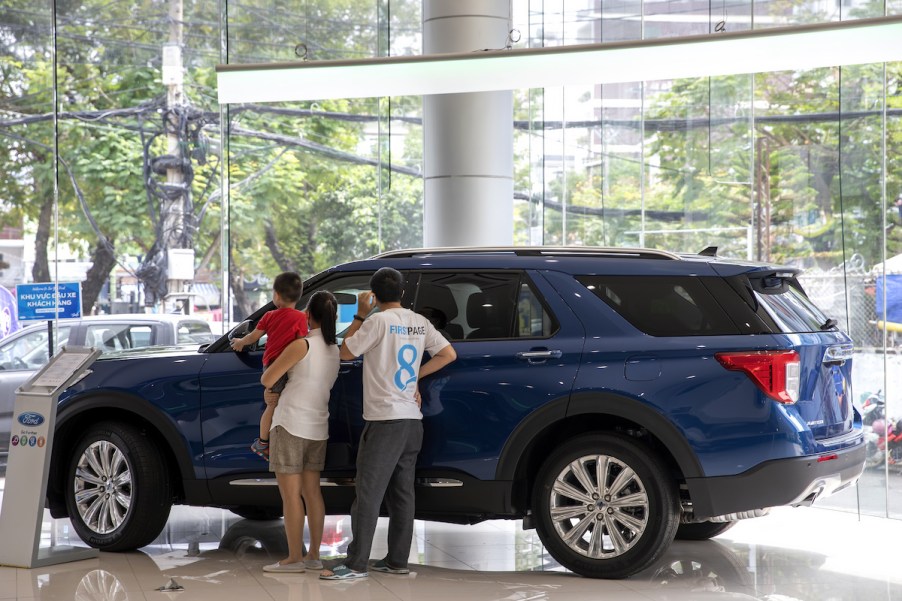
2 Reasons Why SUVs Are so Expensive
SUVs are becoming a popular pick for those that are car shopping. In recent years, consumers have fallen in love with the versatility and added space crossovers and SUVs provide. Families appreciate the third-row models with state-of-the-art entertainment systems and plenty of room for everyone.
Performance enhancements and advanced technologies let off-road enthusiasts go to more places than ever before, and daily commuters enjoy the comfort provided by luxury SUVs. Often replacing sedans and passenger cars, SUVs have continually impressed drivers with advanced safety features, luxurious interiors, and high-end tech options. But all of this comes at a price. So, why are SUVs so Expensive?
1. Expensive tires
Many people don’t realize tires for an SUV are more expensive than cars, especially when you want to take the vehicle on off-road adventures. There are several reasons for this. For starters, a midsize SUV weighs approximately 5,000 pounds, while a smaller car is about half the size, averaging around 2,600 pounds. The additional weight of an SUV puts stress on the tires, requiring better tread and a bigger size to maintain optimal performance.
According to SUV Radar, “A basic set of tires will cost you between $200 and $400, while a performance set will cost you between $800 and $1200!” For a smaller car, tires cost considerably less. The most popular tire size for a four-wheel drive SUV is 235/60 R18, consisting of a rigid material that lasts longer than smaller tires, thus the higher price. Built into the sidewall of the tires are nylon, steel, and other heavy-duty components designed to improve performance, durability, and fuel efficiency.
Another reason tire shops charge more for SUV tires is the increased consumer demand, pushing prices higher than ever. Safety also plays into the high cost of SUV tires. With a higher clearance than passenger vehicles, SUVs need bigger wheels for superior handling and control.
2. Cost of ownership

The overall cost of SUV ownership can be considerably higher when compared to a sedan or smaller passenger vehicle. While the starting MSRP will undoubtedly be more, the additional expenses won’t stop there.
According to Kelley Blue Book, “The 5-Year Cost to Own is the total amount of vehicle-related costs you will likely have to cover during the first 5 years of owning a car.” While these costs can vary greatly depending on the model, year, and condition of the vehicle, there are several factors to consider.
An SUV has a larger fuel tank and is typically not as fuel-efficient as smaller cars, making the cost to fill up considerably higher. Maintenance and repair expenses also tend to be more for SUVs, and automobile insurance is usually higher.
Carrying a higher price tag, the financing costs associated with an SUV will also be more over the life of the loan. Depreciation can also be more drastic with an SUV.
How to lower the cost of owning an SUV
Purchasing a lower-priced SUV will reduce the cost of ownership, but proper maintenance and upkeep can go a long way in limiting expenses. Following the suggested maintenance schedule in the owner’s manual is essential for keeping repairs to a minimum for having a cost-effective and more reliable vehicle.
SUVs are ideal for many people, but before making a purchase, understand the cost of ownership. Selecting an affordable model will help eliminate expensive surprises and keep you happily going down the road for years to come.


